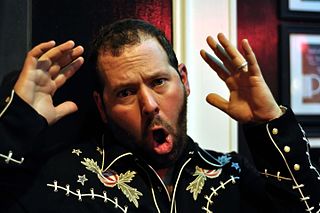A Quote by Laurie Helgoe
Extroverts are more responsive to high-intensity and "happy" stimuli, which may be why an extrovert gets frustrated at the less "readable" face of the introvert.
Quote Topics
Related Quotes
The exaggerated dopamine sensitivity of the introvert leads one to believe that when in public, introverts, regardless of its validity, often feel to be the center of (unwanted) attention hence rarely craving attention. Extroverts, on the other hand, seem to never get enough attention. So on the flip side it seems as though the introvert is in a sense very external and the extrovert is in a sense very internal - the introvert constantly feels too much 'outerness' while the extrovert doesn't feel enough 'outerness'.
You use words like 'introvert' and 'extrovert,' various traits of a personality. A lot of that stuff, we used in drama school, and that was kind of interesting, to realize my teachers sort of ripped off a lot of Jung. And how much of it is part of our society now, these phrases, introvert and extrovert, where it actually came from.
Some findings reveal extroverts as more adept at reading nonverbal cues, and attribute this to the extrovert's greater interest and experience with social interactions. Another line of research using subliminal images of facial emotion found introverts to be more sensitive to the differences, and hypothesized that this may be why introverts regulate the amount of incoming social information.
While there are relatively few extreme introverts or extroverts, most of us lean in one direction or the other. If we lean more toward introversion, we'll generally prefer less social activity than more extroverted people. One inclination is not 'better' than another, but our culture can make it seem as if extroverts have a social advantage.
































